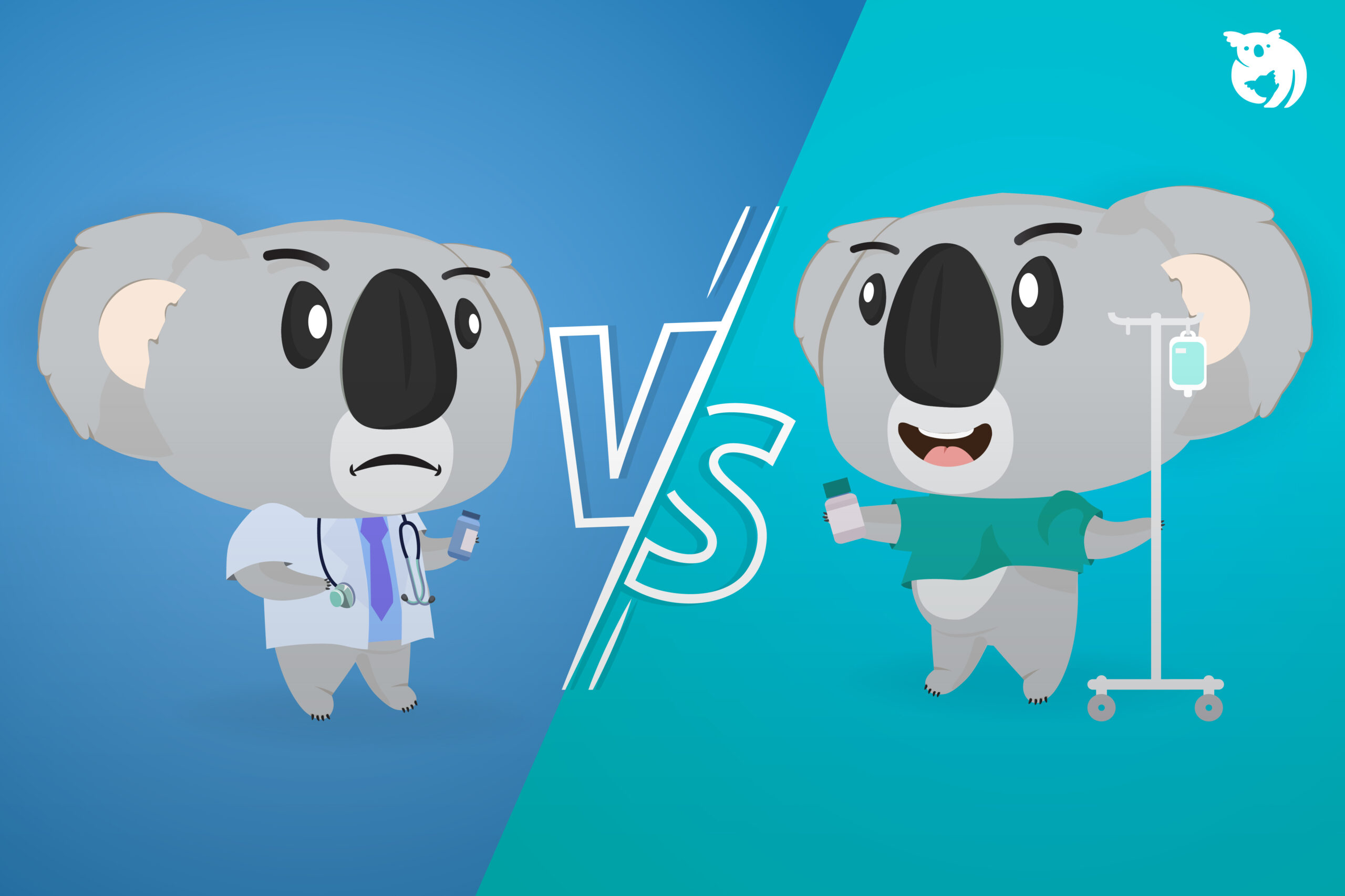Is critical illness insurance really necessary? Many think that medical insurance plans are enough to meet health care needs. However, do you know, medical insurance does not protect all types of diseases, especially chronic or critical diseases? As a result, many people out there decide to take critical illness insurance as a precautionary measure. This article will further explore the difference between the two policies.
Do You Need Critical Illness Insurance if You Already Have Medical Insurance?
What is the difference between critical illness insurance with medical insurance? As you may already know, medical insurance or health insurance plays an important role in protecting you in terms of medical related costs. Meanwhile, critical illness insurance will help policyholders in any chronic illness.
To answer the question of whether you need critical illness insurance, you need to know that these two insurance policies have different purposes. Many people think that standard medical insurance coverage is sufficient to cover unexpected medical costs.
Medical Insurance
By taking medical insurance, you will get financial protection to cover the cost of treatment and medicine. In addition, you will get a medical card for use in a clinic or hospital for treatment. The types of injuries, diseases, and treatment covered by medical insurance are different, depending on the type of medical insurance taken. The more medical protection provided, the higher the amount you have to pay for the medical insurance policy.
The insurance policy holders must pay the insurance premium agreed with the agent or insurance company. As you know, the cost of treatment and medicines for each disease is different. Therefore, the process of selection of medical insurance policy should be carefully made so you can choose the best insurance plan.
Critical Illness Insurance
You can see the function of this plan as much as life insurance that provides compensation in the same form. Generally, a critical disease protection plan compensates in the form of lump sum to you and your family if diagnosed with critical illness, regardless of hospitalization cost.
These compensation money can help you financially so you can cope with the recovery and adjustment process during illness if you have a life-threatening illness. This means that this compensation money should be allocated by your own whether for use for the purpose of treatment, medications and can also be used for other purposes such as alleviating your liability financial burden during the illness.
For example, you can use the benefits received to pay for the cost of follow -up or medical equipment that is not covered under the Medical Protection Plan. In addition, you can also use the money for alternative treatment or pay for financing for your family’s survival.
36 Critical Illnesses Subject to Critical Illness Insurance Coverage
Critical illnesses can be defined as conditions or medicines that can endanger one’s life. In general, the insurance industry usually provides basic protection for 36 critical illnesses. The following are some of the critical illnesses incurred by this insurance policy:
- Heart attack
- Cancer
- Coma
- Alzheimer
- Brain surgery
- Parkinson
- Stroke
- Kidney disease
- Angioplasty and other surgical treatment for major coronary artery disease
- Chronic Aplasia Anemia
- The final stage lung disease
- Final stage kidney failure
- Shortcut surgery for coronary artery
- Benign brain tumor
- Blind or lost sight
- Motor neuron disease
- Primary pulmonary artery hypertension
- Self -disability
- Another serious coronary artery disease
- Bad burning
- Lupus Eritematosus systemic with lupus nephritis (SLE)
- Bacterial meningtis
- AIDS is severe stage
- The main head trauma
- Lost speech
- HIV as a result of blood transfusions
- Paraplegia or paralysis
- Finished heart failure
- Hepatitis Fulminan Virus
- Deaf or lost hearing
- Severe cardiomyopathy
- Aortic surgery
- Encephalitis
- AIDS is severe stage
- Multi -sclerosis
- Heart valve surgery
Differences Between Medical Insurance and Critical Illness Insurance
To get a clearer picture of the differences in medical insurance and critical illness insurance, you can refer to the table below:
| Medical Insurance | Critical Illness Insurance | |
| Purpose | Bear the cost of treatment, hospitalization and medicines. | Bear the cost of treatment, hospitalization and medicines. Provides a lump sum when the plan holder is diagnosed with one of 36 critical illnesses. |
| Beneficiary | Policyholder or dependent (Compensation received to pay medical costs depends on the chosen coverage plan). | Policy holders or dependents, (Compensation received at once for the use of treatment and others). |
| Premium Rate | Increase with age. | Same amount for life. |
How Do You Choose the Best Critical Illness Insurance?
If you plan to get critical illness insurance, there are four main things you need to know before taking a plan. Here are the things that need to be considered:
1. The Amount of Critical Illness Covered
Each plan offers varying critical illness protection. Basic protection may offer only five critical illnesses. However, there are also protection plans that offer additional protection such as personal accidents, maternity, cosmetic surgery and more. It is advisable to select a critical insurance plan by prioritizing a plan that suits your needs.
2. The Survival Period
To your knowledge, there is a period of survival that policyholders should be fulfilled before you can claim your insurance. The duration of survival here means that you as a policyholder must remain alive for a period of time after being diagnosed with critical illness. The terms and conditions for this period vary between insurance companies. Therefore, you need to reconsider the insurance policy you choose.
3. Existing Disease
To your knowledge, not all insurance policies offer protection if you have existing illnesses as you are categorized as at risk individuals. Although some insurance companies offer protection, the price of insurance premiums offered may be more expensive than normal. You need to spend more money if you want a policy that offers existing disease protection.
4. The Waiting Period
The waiting period means that you as a policyholder will only be protected by the policy after a certain period of time. In other words, your policy will only be active after the waiting period. Usually, this waiting period takes 30 or 60 days depending on the type of critical illness.
This means that if you are diagnosed with critical illness during the waiting period, the insurance may reject your claim as it is possible. To get certainty, refer to your insurance company.

When Is The Right Time to Take Critical Illness Insurance Policy?
Taking this critical illness insurance plan is like providing an umbrella before it rains and can be seen in preparation if unwanted things happen to you. When you are young and healthy this is the perfect time to get critical illness insurance as you can get lower insurance premium rates.
Also, if you have a sick family history, you should also consider taking this insurance policy. This is because, there are some critical diseases that are inherited such as cancer and heart disease. Finally and most importantly, you are advised to obtain critical illness insurance if you have such a family.
The compensation money you will receive can not only help your treatment, but it can also be used to ease your family’s financial burden in the event of something to you. For example, you may not be able to work during pain, so the money can be used instead of your monthly salary during the recovery process.
Also, if you want to get the best health insurance, visit the Qoala website for more info. Qoala provides a series of medical and health insurance products from some of the best and most popular insurance companies in Malaysia with a simple, fast and safe process guarantee. In addition, you can also get car insurance, motor insurance and even home insurance in Qoala!

 EN
EN
 MY
MY








